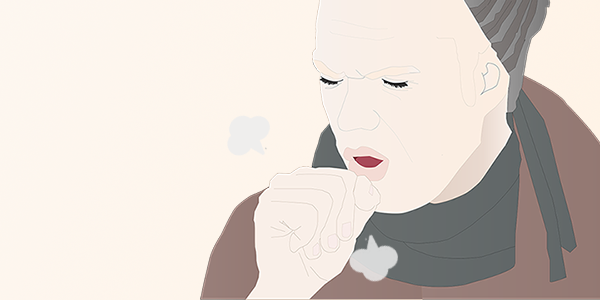Cancer is a disease that occurs by the abnormal division of cells that form a tumor. Cancer has caused the death of countless people between men, women, and children. Does general medicine have any cautionary advice against it?

Cancer is a disease that is caused when the human body cell’s orderly division process becomes abnormal. As cells divide without stopping and spread to surrounding tissues. Cancer is a genetic disease that controls the functions of the cell, it’s growth and division process, (National Cancer Institution, 2015). However, cancer may also occur due to the exposure of the human body to chemicals in tobacco, radiation, and solar ultraviolet rays that may cause damage to the DNA, (National Cancer Institution, 2015). Cancer also causes the formation of tumors.
Chemotherapy is a medication used to stop or slow down the growth of cancer. Chemotherapy is considered to be a painful procedure, as it affects the nerve cells in its process (chemocare, 2002). Therefore, cancer patients go through a long process towards healing, and they require all the love and moral support to stay strong at times of pain. To show solidarity and spread awareness, organizations within communities organize major campaigns on the 4th of February of every year as it is the World Cancer Day.
In the United Arab Emirates, cancer is the third leading cause of death after cardiovascular diseases and accidents, as approximately 500 deaths occur per year ( Tadmouri & Al-Sharhan).
According to the National Cancer Institution in the United States, deaths caused by cancer are 171.2 per 100,000 men and women per year based on the US mortality statistics from 2008-2012. However, cancer mortality is higher among men, as 207.9 occur per 100,000 men and 145.4 per 100,000 women (National Cancer Institution, 2015). Furthermore, there is an expected global increase in cancer cases, in 2012 there were 14.1 million cases of cancer and it is expected to increase to 24 million cases by 2035, (Worldwide cancer Research Fund International, 2015).
Furthermore, due to the widespread of cancer, organizations have been established, such as ‘Global Cancer foundation’, ‘Friends of Cancer Patients’ and ‘Positive Cancer Foundation’ to provide patients with emotional support, spread awareness, and in some cases provide financial support.
With the global widespread of cancer, there are some ways that general medicine advise with to reduce the possibility of cancer diagnosis, although it must be said, that those ways cannot guarantee the prevention of this disease:
- Avoid using tobacco, as smoking is linked to several types of cancers such as, lung, throat, bladder and kidney cancer (Mayo Clinic, 2017).
- A healthy diet will not prevent cancer; however, it may help reduce the risk of cancer (Mayo Clinic, 2017).
- Protect yourself from the sun by applying sun cream and try to avoid the sun rays from 10:00 am to 4:00 pm, as the sun rays are the strongest during that period. This might help reduce the chances of getting skin cancer (Mayo Clinic, 2017).
- Get vaccinated from viral infections such as hepatitis B, which may increase the possibility of developing liver cancer (Mayo Clinic, 2017).
- Get regular medical checkups and screenings for skin, breast and colon cancer. Catching the disease at early stages can help in managing it. (Mayo Clinic, 2017).
- Drinking large amounts of liquids such as water reduces the risk of bladder cancer. (Laliberte, 2011).
- Brisk walking for 2 hours a week can reduce the risk of breast cancer by 18% (Laliberte, 2011).
- Increase your calcium intake as it reduces the risk of colon cancer (Laliberte, 2011).
- Lastly, avoid unnecessary CT scans, as it may trigger leukemia due to the high amount of radiation (Laliberte, 2011).
References:
- Tadmouri , G. O., & Al-Sharhan, M. (n.d.). Cancers in the United Arab Emirates. Retrieved July 24, 2017, from Genetic Disorders in the Arab World: United Arab Emirates: http://cags.org.ae/cbc08ca.pdf
- chemocare. (2002). Pain & Chemotherapy. Retrieved July 30, 2017, from chemocare: http://chemocare.com/chemotherapy/side-effects/pain-and-chemotherapy.aspx
- Laliberte, R. (2011, November 16). 20 Ways To Never Get Cancer. Retrieved July 17, 2017, from Prevention: http://www.prevention.com/health/health-concerns/everyday-cancer-prevention-tips
- Mayo Clinic. (2017). Cancer prevention: 7 tips to reduce your risk. Retrieved July 17, 2017, from Healthy Lifestyle, Adult health: http://www.mayoclinic.org/healthy-lifestyle/adult-health/in-depth/cancer-prevention/art-20044816?pg=2
- National Cancer Institution. (2015, February 9). What is Cancer? . Retrieved July 17, 2017, from National Cancer Institution: https://www.cancer.gov/about-cancer/understanding/what-is-cancer
- Worldwide cancer Research Fund International. (2015, January 16). Worldwide data. Retrieved July 24, 2017, from Worldwide cancer Research Fund International: http://www.wcrf.org/int/cancer-facts-figures/worldwide-data



